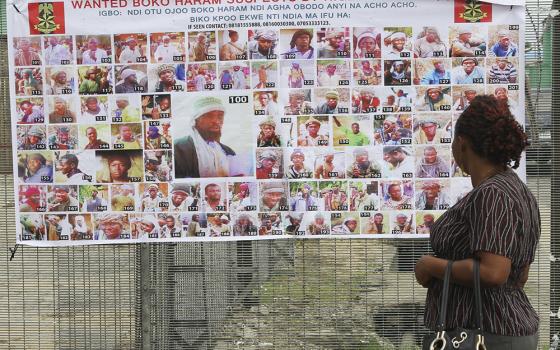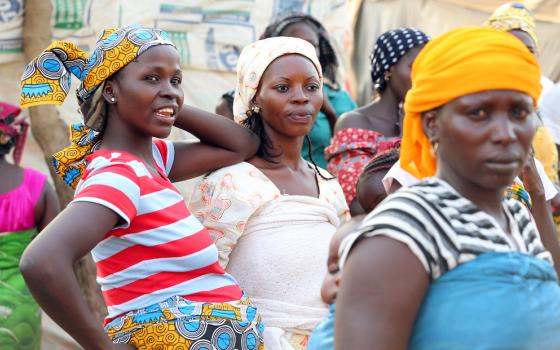It's very easy on social media to criticize the perceived tendency of the press to chase celebrity and sensationalism while ignoring human tragedy.
Often, the stories of humanitarian disasters and other calamities are, in fact, being covered — they're just not being seen because readers and viewers tend to choose celebrity and sensationalism over human tragedy.
It's also difficult, especially in an age of sound bites and short attention spans, to cover things that unfold in slow motion.
Regardless, the situation in Nigeria can no longer be ignored, and The Washington Post recently published a powerful look at the crisis that threatens to shatter a nation already suffering:
They survived Boko Haram. Now many of them are on the brink of starvation.
Across the northeastern corner of this country, more than 3 million people displaced and isolated by the militants are facing one of the world's biggest humanitarian disasters. Every day, more children are dying because there isn't enough food. Curable illnesses are killing others. Even polio has returned.
About a million and a half of the victims have fled the Islamist extremists and are living in makeshift camps, bombed-out buildings and host communities, receiving minimal supplies from international organizations. An additional 2 million people, according to the United Nations, are still inaccessible because of the Boko Haram fighters, who control their villages or patrol the surrounding areas.
The Post says the crisis has been largely invisible not because the press would rather cover election foibles, but because Boko Haram has made it unsafe for journalists to travel; humanitarian aid groups and the United Nations dramatically underestimated the size of the problem; and the Nigerian government, fearing embarrassment, refused to acknowledge how many of its citizens were going hungry.
How bad is it?
Xavier Henry, the local coordinator for Doctors Without Borders, came to Nigeria from Yemen, where the population in one of the poorest nations in the world has suffered for nearly two years under a civil war. The Post said the conditions in Nigeria "leveled him." "I've never seen anything this bad," said Henry.
In 2014, after years of guerrilla attacks, Boko Haram fighters swept across Borno, forcibly recruiting young men to fight and detaining young women in what effectively became rape camps. The insurgents killed thousands of civilians. The rebels became notorious worldwide in 2014 for kidnapping nearly 300 schoolgirls, an atrocity that prompted the "Bring Back Our Girls" campaign. Less well-known was the insurgents' destruction of the agricultural output of Borno, a Belgium-size state that was once a breadbasket for the region.
Though the Nigerian military has retaken major cities in the region, Boko Haram fighters still roam freely, making it too dangerous for aid groups to move food or even to know how much is needed. How did Boko Haram destroy food production? Terror, the Los Angeles Times reports:
The famine is the product of Boko Haram's scorched-earth attacks, which stopped farmers from planting, fishermen from casting their nets and traders from plying their goods. But aid from the Nigerian government and the international community only recently began to increase for a population that, already struggling with chronic malnutrition, has been tipped into starvation by the crisis.
Also, there have been allegations that food meant for desperate families has been stolen in recent months, one reason food parcels do not always arrive at aid stations and camps.
At least 65,000 people are in famine in Nigeria, according to aid experts, and 2.5 million children are malnourished.
The U.N. estimates that unless help arrives, 1 in 5 children in northeastern Nigeria will starve to death. More than 2 million people are trapped in villages no one can get to because of Boko Haram, making that help unlikely anytime soon.
Remember, links, tips and accounts of the response to any crisis anywhere in the world are always welcome at dstockman@ncronline.org.
[Dan Stockman is national correspondent for Global Sisters Report. His email address is dstockman@ncronline.org. Follow him on Twitter or on Facebook.]


